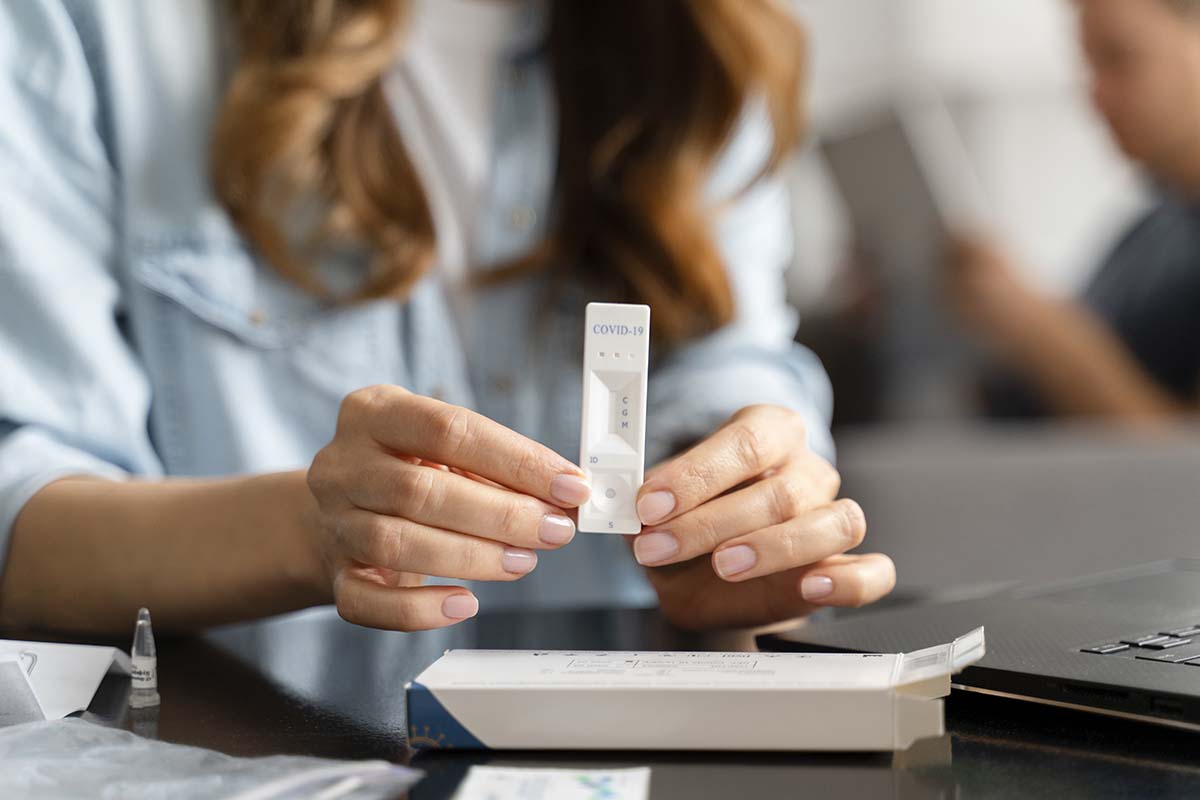In today’s fast-paced world, where early detection of infections, particularly COVID-19, is crucial to prevent further spread and ensure timely treatment, understanding which tests are most useful is essential.
The Rapid Antigen Test has emerged as a popular choice to identify viral illnesses in healthcare facilities and for personal use. Read on to learn what a Rapid Antigen Test is, how it works, and its applications in various situations.
Understanding Rapid Antigen Tests
Antigens are proteins found on the surface of pathogens, such as viruses or bacteria. Rapid Antigen Tests (or RATs) detect the presence of antigens rather than the pathogen’s genetic material. These tests are suited for detecting the active presence of a virus when an individual is contagious and spreading the virus. PCR tests target the pathogen’s genetic material and identify its presence at various stages throughout the infection and beyond.
How Rapid Antigen Tests Work
The Rapid Antigen Test typically requires a nasal or throat swab, similar to other diagnostic tests for respiratory viruses like the flu or COVID-19. It detects the presence of specific antigens by using antibodies that have been immobilized on a testing strip. If the sample contains the targeted antigen, the antibodies will bind to it, resulting in a visible signal such as a color change or a line appearing on the strip. This event indicates a positive result, while the absence of such a visible reaction suggests a negative result. In a majority of cases, results are available within 15-30 minutes.
Accuracy and Limitations of Rapid Antigen Tests
Rapid Antigen Tests are valued for their speed and ease of use, making them popular for mass testing and point-of-care locations. However, it is essential to remember that the accuracy of these tests can be lower than other diagnostic methods, such as PCR tests. This means that while a positive result in a Rapid Antigen Test is highly likely to be accurate, a negative result may not always guarantee that the individual tested is not infected.
This is particularly true if the individual is in the early or late stages of infection, as the antigen levels in their body may be too low to be detected by the test. In such cases, confirming with a PCR test is recommended, considered the “gold standard” of COVID-19 testing.
Demystifying the Rapid Antigen Test: Practical Applications of Rapid Antigen Tests
Given their relative speed and ease of use, Rapid Antigen Tests have found numerous applications in detecting viral infections. They are widely used for mass testing in airports, schools, and other points of entry to identify and isolate individuals who might be infectious.
They can also be employed as regular surveillance tools in high-risk settings, such as nursing homes, to catch outbreaks early and protect vulnerable populations. Additionally, RATs are available for personal use, allowing individuals to confirm their infection status at home and take necessary precautions in case of a positive result.
Regulatory and Ethical Considerations
Rapid Antigen Tests are regulated differently around the globe, with some countries placing greater emphasis on their use for mass testing. In contrast, others prioritize PCR tests due to their higher accuracy levels. As with any diagnostic tool, awareness of its limitations is critical. A key ethical aspect to consider is the impact of false negatives on public health decision-making and individual behavior. Users should be educated on the possible inaccuracies of the test to prevent a false sense of security that may lead to behavior that could contribute to the spread of the virus.
In summary, Rapid Antigen Tests serve as a helpful tool for detecting active viral infections quickly and affordably, particularly in situations where timely results are essential. Individuals and institutions can incorporate the appropriate measures to maintain public health safety by understanding the mechanisms behind these tests and their limitations.
Rapid Antigen Tests will continue to play a critical role in the fight against the virus, complementing other diagnostic tools and public health strategies as the world navigates the pandemic.



















